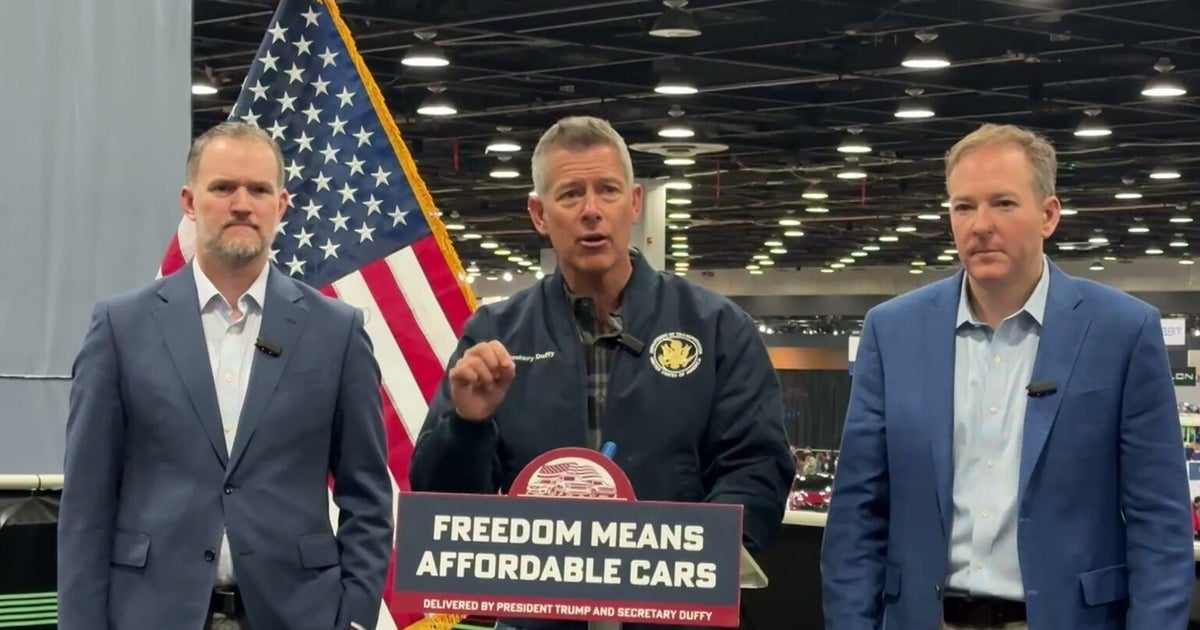GOP to vote on rescinding consumer protection guidance on auto sales loans
The Republican-led Congress last year revoked more than a dozen Obama-era federal regulations. Now, it's poised to undo guidance a consumer protection agency issued five years ago to help ensure minority car buyers aren't charged higher interest rates.
Republicans said that rescinding the guidance is necessary because it amounted to a backdoor attempt to regulate auto dealers. Congress expressly prohibited such regulation when establishing the consumer protection agency through passage of the Dodd-Frank Act in 2010.
The legislative battle extends beyond the terms of car loans, however. Opponents warned that the GOP's fight against government regulations is entering a new phase and a Senate vote Wednesday could be the first of many to nullify scores of agency bulletins and guidance letters issued over the years. Such guidance conveys to the public how regulators interpret existing law and what steps industries should take to comply.
The GOP is using what had been a rarely successful legislative tool to overturn regulations that were often years in the making. The Congressional Review Act gave Congress the ability to overturn recently issued federal rules with a simple majority of both chambers of Congress and approval of the president. Before President Donald Trump came into office, Congress had overturned only one federal rule over two decades using the tools available through the Congressional Review Act. Last year, it overturned 15 federal rules.
The GOP is expanding its use of the 1996 law to take on guidance that Consumer Financial Protection Bureau issued five years ago regarding certain car loans. The Consumer Federation of America called the effort a "dangerous precedent" that will lead to uncertainty over whether agency interpretations of a law will be invalidated years after the fact.
"Congress risks increasing confusion and miscommunication between the government and businesses in every sector of the economy," the Consumer Federation of America said.
But Republicans framed the issue as Congress coming to the rescue of businesses.
"Republicans are chopping away at the tangled mess of regulations the last administration left behind," said Senate Majority Leader Mitch McConnell. "Our whole economy is getting a tune-up. And now it's time for the front end of the auto industry to come along for the ride."
Auto dealers often facilitate financing through a third-party lender. In some cases, the dealer will charge the customer an interest rate that is higher than what the third party agreed to charge. Then, the dealer will sell the installment contract to the lender and get a payment called the dealer markup that compensates them for persuading the borrower to accept the higher interest rate.
The CFPB said that the practice led to some minority customers paying higher interest rates than similar white borrowers. In its guidance, it highlighted the potential liability auto lenders face from discriminatory dealer mark-ups and how that can be avoided.
The guidance has rankled lawmakers who considered it regulatory overreach. The House passed bipartisan legislation to nullify the guidance in 2015, but the Senate didn't take up the bill.
But critics didn't give up. Sen. Pat Toomey, R-Pa., asked government auditors to review the matter. The question for the Government Accountability Office was whether the consumer agency's guidance met the broad definition of a rule under the Congressional Review Act, which requires agencies to submit a report to Congress on each new rule before it can take effect.
The GAO found that even general statements of policy qualify as a rule. That finding gave Congress a short window into early May to overturn the rule with simple majorities in both chambers.
Sen. Mike Crapo, the Idaho Republican who chairs of the Committee on Banking, Housing and Urban Affairs, said the consumer protection bureau made significant changes to an important sector of the economy without allowing for public input. He said that disapproving the agency's guidance will give consumers more options for financing autos while ensuring the CFPB abides by the congressional limits on its jurisdiction.
Sen. Brian Schatz, D-Hawaii, warned Republican lawmakers that Democrats at some point will win the majority and it will be able "scour everything that every Republican administration" has done for decades.
"The last thing that this institution needs is a new opportunity to go down new rabbit holes on partisan issues," Schatz said.





